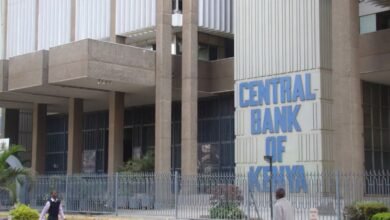
The government has expressed commitment to reduce the country’s budget deficit from the current 7.7% in 2018/2019 to a low of 3.4% in the 2020/2021 fiscal years. According to the Principal Secretary of the National Treasury and Planning Dr. Julius Muia, the government intends to reduce the budget deficit by maximizing on technology and expanding its tax base to collect enough revenue to fund the budget thereby cutting down on both domestic and foreign borrowing.
The move comes in the wake of Kenya Revenue Authority consistently missing its revenue targets and a growing annual budget which piles pressure on Kenya’s already increasing debt burden. The remarks were made during the launch of the 20th edition of the World Bank Kenya economic update report.
The 2019/2020 budgets was this year valued at 3.01 trillion Kenya shillings with a deficit of 607. 8 billion shillings up from 562 billion shillings in the previous fiscal year. This came against the backdrop of the Kenya Revenue Authority missing its revenue collection target.
With not enough money to fund its own budget, the Kenyan government has in the past resorted to borrowing to make up for the deficit. However, during the launch of the 20th edition of the world bank Kenya economic update report, Dr. Julius Muia, principal secretary at the ministry of national planning and treasury said the government is now looking to lower the national budget deficit before 2022.
With little to no more room left to borrow and a constantly growing national budget, Dr. Muia says the government will ensure efficiency in its revenue collection mechanisms to supplement the government’s revenue basket.
With the Kenya Revenue Authority having missed its target in the previous years and the government resorting to borrowing to fund the budget deficit as well as other development projects, the concern is rife over the country’s debt appetite as Kenya’s current debt stands at 5.9 trillion shillings. However, even in the midst of these realities, Peter Chacha, senior economist at the World Bank says that debt does not necessarily spell doom as long as it is invested wisely.
The 20th edition of the world bank Kenya economic update report that was launched today points to the fact that the real GDP of the country has been expanding on average by 5.6% over the last four years with economic activity softening in 2019 due to poor climate conditions and weak private sector investment. If the government is to reduce the budget deficit by collecting enough revenue it must then address the challenges hindering the growth of private sector investment and the agricultural sector.





